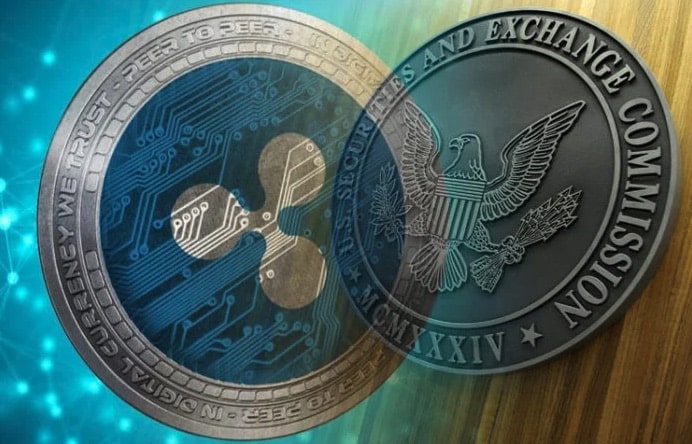Coinbase, one of the leading cryptocurrency exchanges, is considering relocating its operations outside of the United States if the regulatory landscape for the crypto industry remains ambiguous. In a recent statement, Coinbase CEO Brian Armstrong expressed concern about the lack of clarity in U.S. cryptocurrency regulations and hinted at the potential need to move the company’s operations to a more conducive regulatory environment.
Armstrong’s remarks come amid growing regulatory scrutiny on cryptocurrencies and digital assets in the United States. The regulatory landscape for cryptocurrencies has been rapidly evolving, with various federal and state agencies attempting to establish their jurisdiction and impose regulations on the industry. This has created a complex and uncertain environment for cryptocurrency exchanges like Coinbase, which seek regulatory clarity to operate confidently and comply with applicable laws.
In his statement, Armstrong emphasized the importance of clear and comprehensive regulations that provide a predictable framework for cryptocurrency businesses to operate within. He stated that if the regulatory environment in the United States does not become clearer, Coinbase may have to explore options outside of the country to ensure the long-term viability and growth of the company.
“Anything is on the table, including relocating or whatever is necessary,” he said after former U.K. Chancellor George Osbourne asked whether he could see Coinbase leaving the U.S. at Fintech Week in London.
“I think the U.S. has the potential to be an important market for crypto, but right now we are not seeing that regulatory clarity that we need,” he said. “I think in a number of years if we don’t see that regulatory clarity emerge in the U.S. we may have to consider investing more elsewhere in the world.”
A Key to Sustaining Growth in the Cryptocurrency Industry as Coinbase and Bittrex Mull Relocation
Coinbase CEO Brian Armstrong’s recent comments about the possibility of relocating away from the U.S. due to regulatory ambiguity in the cryptocurrency industry echo similar sentiments expressed by rival exchange Bittrex. In March, Bittrex received a Wells Notice from the U.S. Securities and Exchange Commission’s (SEC) Enforcement Division, indicating evidence of legal violations, and the SEC subsequently filed a lawsuit against the exchange. Bittrex recently announced plans to exit the U.S. by the end of April, citing concerns about the current regulatory and economic environment.
Armstrong also highlighted the regulatory differences between the U.K. and the U.S. In the U.K., only one regulator, the Financial Conduct Authority (FCA), oversees commodities and securities. In contrast, the U.S. has separate regulatory bodies, including the Commodity Futures Trading Commission (CFTC) and the SEC, which can create complexities and uncertainties for cryptocurrency businesses like Coinbase.
These developments highlight the growing concerns within the cryptocurrency industry about the lack of clear and comprehensive regulations in the U.S. and the potential impact on businesses and innovation. The potential relocation of Coinbase and Bittrex away from the U.S. underscores the need for regulatory clarity and consistency to foster a conducive environment for the growth and sustainability of the cryptocurrency industry.
Bridging the Gap for Cryptocurrency Industry Regulation
“You don’t have this unfortunate thing happening where the CFTC and the SEC are having a turf battle,” he mentioned. “We actually have contradictory statements from the heads of the CFTC and the SEC coming out almost every few weeks. How’s a business going to operate in that environment? We just want a clear rulebook.”
Coinbase, according to CEO Brian Armstrong, received a Wells Notice from the U.S. Securities and Exchange Commission (SEC) in March. Armstrong expressed frustration, stating that Coinbase had met with the SEC 30 times but received feedback on the nature of its business after receiving the Wells Notice.
Armstrong also highlighted what he perceives as a need for more distinction or nuance in how regulators view different aspects of the cryptocurrency industry. He believes that cryptocurrency exchanges like Coinbase should be regulated as financial services companies, while the decentralized areas of the industry should be treated differently due to the absence of a central authority for the regulation.
In addition, Armstrong also highlighted the potential of decentralized identity as a compelling use case for blockchain technology beyond just cryptocurrency. He believes that blockchain has the potential to revolutionize the way identity is managed and verified in a decentralized and secure manner.
Coinbase has also taken steps to expand its involvement in the broader uses of blockchain technology. Earlier this year, the company introduced Base, an Ethereum layer 2 network that allows developers to build decentralized applications (dapps). This move signals Coinbase’s intention to move beyond just being a digital asset trading platform and actively participate in developing and expanding blockchain technology beyond cryptocurrencies.












